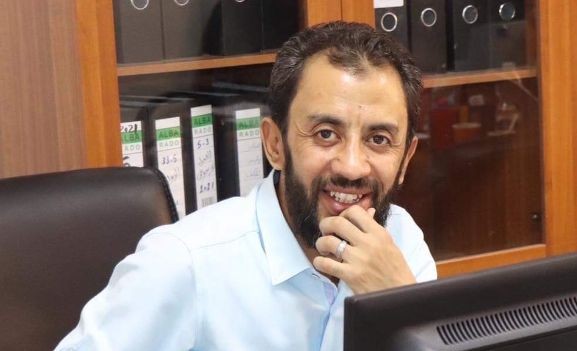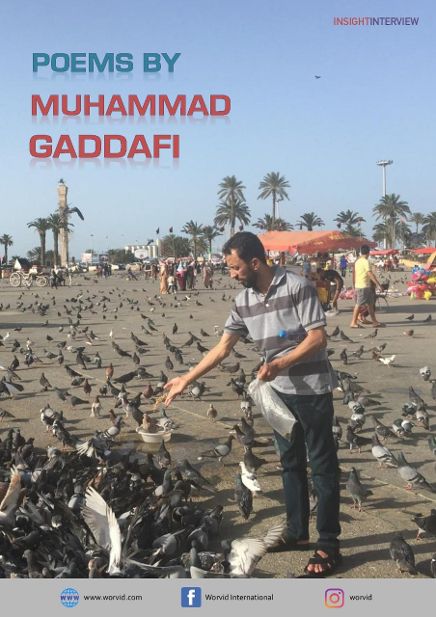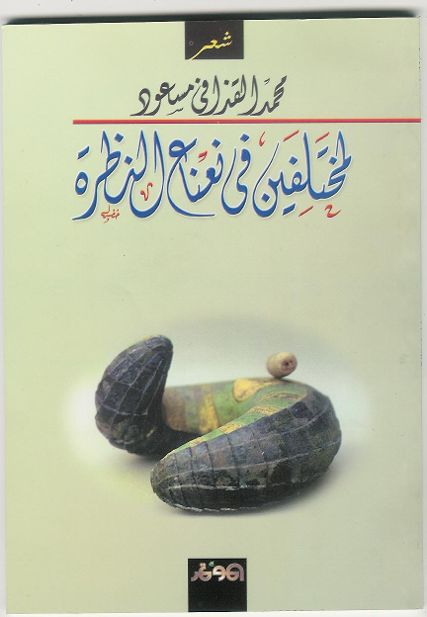IL LETTERATO LIBICO TRA LOCALE E GLOBALE
Il Letterato Libico tra Locale e Globale
Salah al-Din Rashid
La letteratura libica, come una radice profondamente ancorata in un suolo gravato dalle trasformazioni, resiste alla fragilità del momento e porta tra le sue pagine un desiderio costante di aprirsi al mondo. È una letteratura plasmata dalla sofferenza tanto quanto è nutrita dai sogni, che avanza tra le tempeste, carica delle voci di scrittori che hanno fatto della lingua il loro mezzo di sopravvivenza e del testo un’arena di lotta tra sé e realtà, tra appartenenza e libertà.
In questo orizzonte ambiguo tra interno ed esterno, si distingue la voce dello scrittore e poeta Muhammad al-Qaddafi Masoud, originario di Gharyan, che incarna la competenza del creativo libico e la sua capacità di rendere la propria esperienza locale uno specchio per tutta l’umanità. Non si accontenta di un singolo testo né si limita a un genere letterario specifico; si muove tra poesia, prosa, teatro, saggistica e dialoghi, come se attraversasse le terre dell’anima alla ricerca di un nuovo significato per la scrittura. La sua lingua scorre con una semplicità radiosa, carica di simboli che illuminano i dettagli quotidiani e li trasformano in finestre sull’esistenza. Scrive come se dialogasse con la vita stessa. Non elude le sue domande, ma le affronta con uno sguardo aperto alla libertà e alla delusione, ai sogni e alla sconfitta. Da questo contatto costante con la realtà nasce la profondità della sua scrittura, e ne emerge una umanità luminosa, che rende ogni poesia o testo un’esperienza contemplativa di esistenza e bellezza.
Nonostante la fragilità istituzionale e le piattaforme limitate che circondano la scena culturale libica, Masoud continua a perseverare e accumulare, affidandosi alla libertà individuale come valore e rifugio spirituale, rifiutando che la sua voce venga confinata dalla geografia o dalla burocrazia culturale. Partecipa a forum e piattaforme arabe e internazionali, e le riviste poetiche accolgono i suoi testi come nuova linfa nel corpo della poesia araba. La sua presenza conferma che, quando lo scrittore libico crede nel proprio testo e in sé stesso, può raggiungere il mondo.
Nel profondo della sua esperienza, Muhammad al-Qaddafi Masoud non rappresenta tanto un individuo quanto incarna una trasformazione nell’immagine dello scrittore libico moderno. Uno scrittore che unisce l’autenticità delle sue radici con l’audacia della modernizzazione, una lingua che sgorga dalla terra e un’immaginazione che la apre all’universo. È il modello di uno scrittore che non si limita a scrivere poesia, ma vi inscrive tutta la propria esistenza, raggiungendo un raro equilibrio tra il suo localismo, che gli dà radici, e la sua umanità, che gli dona ali. La sua presenza nella scena araba e internazionale diventa prova che la competenza letteraria non si misura con premi o occasioni, ma con l’atto continuo di sperimentazione e rinnovamento, e con la capacità di trasformare un testo in un’identità e in una voce che continua a risuonare negli spazi culturali. Testimonia che lo scrittore libico, quando scrive con sincerità e perseveranza, può essere un volto di una letteratura ampia e profondamente umana.
The Libyan Writer Between the Local and the Global
Salah al-Din Rashid
Libyan literature, like a root deeply rooted in a soil burdened by transformations, resists the fragility of the moment and carries within its pages a constant desire to open up to the world. It is a literature shaped by suffering as much as it is nourished by dreams, advancing amidst storms, laden with the voices of writers who have made language their means of survival, and text an arena for the struggle between self and reality, between belonging and freedom.
In this ambiguous horizon between the interior and the exterior, the writer and poet Muhammad al-Qaddafi Masoud, a native of Gharyan, stands out as a voice that embodies the competence of the Libyan creative and his ability to make his local experience a mirror for all of humanity. He is not content with a single text and does not confine himself to a specific literary genre; he moves between poetry, prose, theater, essays, and dialogues, as if traversing the lands of the soul in search of a new meaning for writing. His language flows with its radiant simplicity, laden with symbols that illuminate everyday details and make them windows onto existence. Muhammad al-Qaddafi Masoud writes as if he is engaging in dialogue with life itself. He does not evade its questions, but rather confronts them with an eye open to freedom and disappointment, to dreams and defeat. From this constant contact with reality is born the depth of his writing, and his radiant humanity emerges, making every poem or text a contemplative experience of existence and beauty.
Despite the institutional fragility and limited platforms that surround the Libyan cultural scene, Masoud continues to persevere and accumulate, relying on individual freedom as a value and a spiritual outlet, refusing to let his voice be confined by geography or cultural bureaucracy. He attends Arab and international forums and platforms, and in poetry journals that receive his texts as if they were a new sap in the body of Arabic poetry. His presence confirms that when the Libyan writer believes in his text and himself, he can reach the world.
In the depths of his experience, the writer Muhammad al-Qaddafi Masoud does not represent an individual so much as he embodies a transformation in the image of the modern Libyan writer. A writer who combines the authenticity of his affiliation with the boldness of modernization, a language that springs from the earth and an imagination that opens it to the universe. He is a model of a writer who does not merely write poetry, but inscribes his entire existence in it, achieving a rare balance between his localism, which gives him roots, and his humanity, which grants him wings. Thus, his presence in the Arab and international arena becomes proof that literary competence is not measured by awards or occasions, but rather by the continuous act of experimentation and renewal, and by the ability to transform a text into an identity and a voice that continues to resonate in cultural spaces. He bears witness that the Libyan writer, when he writes with sincerity and perseverance, can be a facet of a broad, humane literature.



